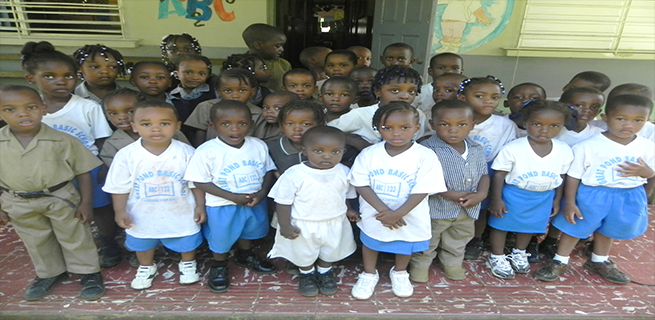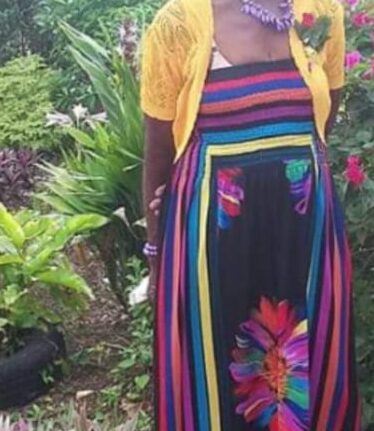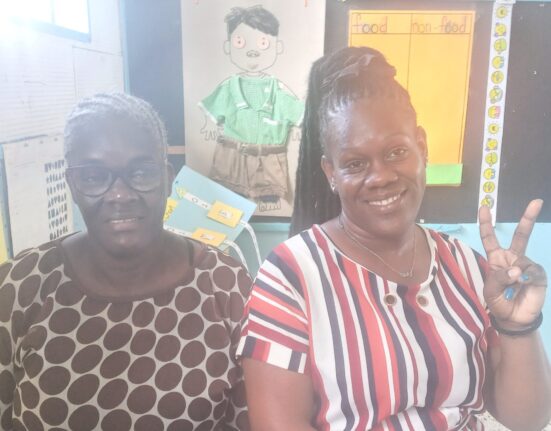PROVIDING A LEARNING ENVIRONMENT
This is the second article in a series by educator Eugena Robinson on Early Childhood education. Last week she wrote about the support among many parents for the early education of their children and development of a curriculum for the Early Childhood sector.
I have had dialogue with many parents, who are comfortable fulfilling all their schools’ demands, in addition paying school fees either monthly or termly. Parents all appear to be satisfied with their children’s progress, as they become involved in homework to be done from these workbooks. Because home work is compulsory, they are able to help their children with the workbooks.
Do most parents really understand how children learn concepts? Or, is rote learning delaying the progress that primary school children make especially in understanding mathematical concepts and letter sounds? What is writing? Is it copying, tracing or thinking and recording? When and how do we introduce a child to creative writing? What is mathematics in early childhood? Do children really understand why they add and subtract numbers, or are they given 3+ 4= 7 without understanding the process?
Are pre-schools denying children the time to play and learn, or are the classrooms overcrowded with unnecessary material that makes the classroom just pretty? These and many other concerns plague our early learning centres and send children to primary schools looking ready but not truly ready for formal schooling. Is music very beneficial to brain development? Do parents need to be trained to do the right things for their children? How important is the social and emotional development of pre-school children? These and many more questions will be addressed in the interest of parents and pre-school children in these columns.
Why is a learning environment for pre-school children of great importance? In recent times, the emphasis in Basic schools is teaching a curriculum. This curriculum which is arranged in themes provides a number of topics that the children should learn. The proof that teachers have taken all this knowledge seriously, is that they gravitate to the workbooks that include everything that the curriculum outlines. The teachers are in a teaching mould as set out in their lesson plans.
The rule of thumb is that children learn by doing and this doing does not mean tracing or copying what someone else has written.
Let us try to capture a typical learning environment. Unfortunately, the first three learning centres which attract children are, sand, water and building blocks. Most schools have banned water and sand and replaced them with workbooks. Sand and water are considered by the teachers to be too messy, but with training, the children learn how to avoid spillage and how to clean up. Are these valuable lessons for all children? In these centres the children learn about capacity as they begin to use concept words, for example, full, fill, more, less, same amount. Problem-solving comes into play when the teacher asks questions about, how many, and the children have to figure ways to find the answers.
A house keeping centre with gadgets that are familiar to the children, plays a significant role in oral language and the development of social skills. A reading centre helps children to develop a love for books and they will resort to reading the pictures after they know what the story is about. The children are eager to draw pictures and write their stories about their experiences.
A manipulative centre with puzzles, building blocks, helps children learn about shapes and their adaptability to building structures. Paintings on large sheets have been replaced by the little tubs of paints and small brushes that children use during teacher directed lessons.
-END-
CONTINUED NEXT WEEK: In the North Coast Times









